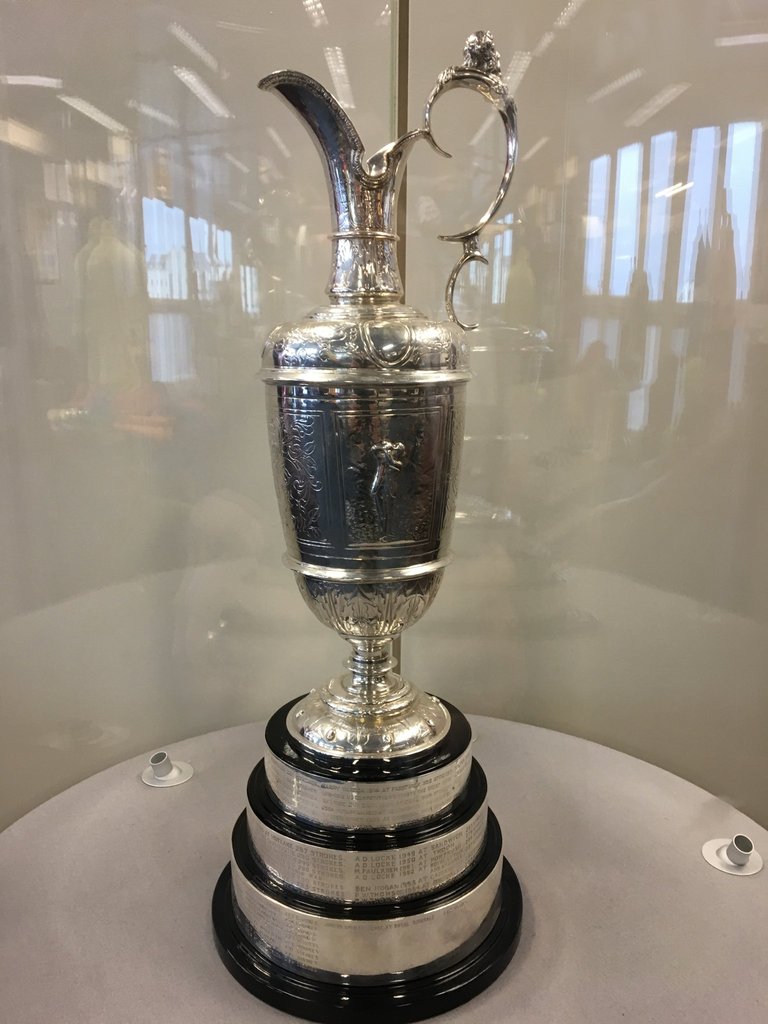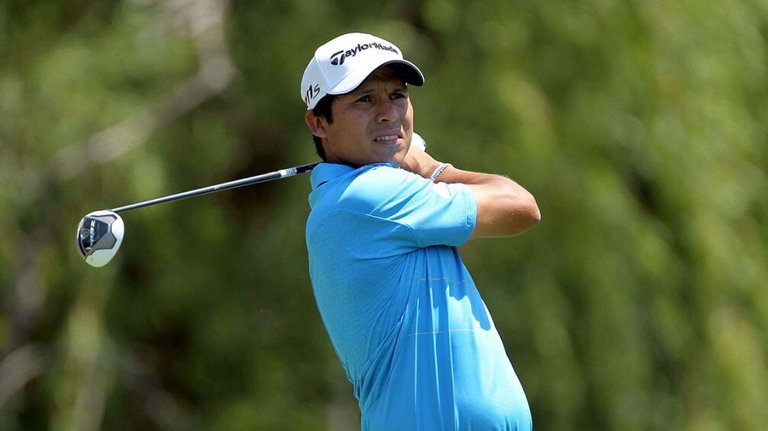Los demonios propios (SPA-ENG)

En todo deporte profesionalizado, la idea de triunfar y obtener fama, dinero y reconocimiento público se convierte para muchos en una obsesión, el motivo principal por el cual son conducidos a un esfuerzo adicional y la superación constante, o al fracaso más rotundo.
Depende de la mente del individuo en un porcentaje mayor que su propia capacidad y talento estar o no preparado para el éxito, de hecho, puede ser el factor primordial y excluyente para alcanzarlo.
En los deportes individuales esa mentalidad es menos llevadera que en los grupales, al estar solos sus propios demonios internos juegan permanentemente y en muchos casos en contra del propio individuo y sus intereses, como dije antes, pese a su capacidad y talento que son necesarios, pero no suficientes.
Eso lo hemos visto en infinidad de ocasiones, jugadores talentosos que sobresalían indiscutiblemente en su actividad han desaparecido de los primeros planos, en ocasiones por escándalos de diversos tipos, pero también sin causas aparentes del por qué fracasaron o se perdieron; en un buen porcentaje hay que buscar los motivos en el derrumbe mental del propio jugador por encima de cualquier otra cosa.
Toda esta introducción está motivada en el golf y en el Open británico que comenzó en el día de ayer y trajo a mi recuerdo a un gran jugador compatriota, el tucumano Andrés "Pigu" Romero quien en el año 2007 estuvo al borde de ingresar a la exclusiva categoría de ganadores de ese torneo que es el más antiguo en la historia del golf e integrante del Grand Slam de la especialidad.

A dos hoyos de finalizar el campeonato (ya se habían jugado 70 de 72) Romero venía jugando maravillosamente con 10 birdies y punteaba en soledad el leaderboard, pero ese momento su mente le jugó una mala pasada y le hizo coquetear por un instante con la idea de ganar y pasar a la inmortalidad, hizo doble bogey en el hoyo 17 y bogey en el hoyo 18, perdió por un golpe. Yo fui mudo testigo a través de la TV de esas imágenes y de su cara al finalizar el torneo. Luego el propio jugador reconoció ese momento, dijo: "sentí que tenía el poder y perdí el foco".
Si yo mismo, a miles de kilómetros de distancia y sin mediar ningún interés personal más que la simpatía por un compatriota, sentí que el mundo se venía abajo, no quiero ni imaginar lo que cruzó por su cabeza en ese entonces.
Romero nació en Yerba Buena, un pequeño y perdido pueblo en la norteña provincia de Tucumán, de orígenes muy humildes, de pequeño sufrió una enfermedad renal que lo tuvo postrado por un tiempo, pero al recuperar la movilidad debió salir a trabajar para ayudar a su familia, de esa forma llegó al golf, como muchos buenos jugadores, fue caddie.

Luego de esa frustrante caída se recuperó inmediatamente ganando la semana siguiente el Players Championship de Europa, pero eso fue todo; lesiones, frustraciones y falta de rigurosidad en el entrenamiento y la conducta que todo deportista de elite debe contemplar, lo llevaron a un tobogán del que resbaló hasta el olvido y la resignación.
Por estos días y con motivo de esa recordada frustración en el Abierto Británico, ha salido en algún medio periodístico local para avisar que está trabajando en todos los frentes, incluido el psicológico, para intentar volver a ser lo que fue, al menos lo que insinuó ser.
Han pasado unos cuantos años y la juventud no se recupera, si quizás esté aprendiendo a domar sus propios demonios, motivo principal y excluyente de la celda mental que lo ha mantenido cautivo.
Own demons
In any professional sport, the idea of succeeding and obtaining fame, money, and public recognition becomes an obsession for many, the main reason why they are driven to additional effort and constant improvement, or the most complete failure.
Whether or not he is prepared for success depends on the individual's mind a greater percentage than his ability and talent; in fact, it can be the primary and exclusive factor in achieving it.
In individual sports, this mentality is less bearable than in group sports. Being alone, your internal demons play permanently and in many cases against the individual and their interests, as I said before, despite their ability and talent, which are necessary. but not enough.
We have seen this on countless occasions, talented players who indisputably excelled in their activity have disappeared from the limelight, sometimes due to scandals of various types, but also without apparent causes as to why they failed or were lost; In a good percentage we have to look for the reasons in the mental breakdown of the player himself above anything else.
This entire introduction is motivated by golf and the British Open that began yesterday and brought to my memory a great compatriot player, Andrés "Pigu" Romero from Tucumán, who in 2007 was on the verge of entering the exclusive category of winners of that tournament, which is the oldest in the history of golf and a member of the Grand Slam of the specialty.
Two holes before the end of the championship (70 of 72 had already been played) Romero had been playing wonderfully with 10 birdies and was alone on the leaderboard, but at that moment his mind played tricks on him and made him flirt for a moment with the idea to win and go on to immortality, he made double bogey on the 17th hole and bogeyed the 18th hole, losing by one stroke. I was a mute witness through the TV of those images and of his face at the end of the tournament. Then the player himself recognized that moment, he said: "I felt like I had the power and I lost focus."
If I, thousands of miles away and without any personal interest other than sympathy for a compatriot, felt that the world was collapsing, I don't even want to imagine what crossed his mind at that time.
Romero was born in Yerba Buena, a small and lost town in the northern province of Tucumán, of very humble origins. As a child, he suffered from a kidney disease that left him bedridden for a time, but when he regained his mobility, he had to go out to work to help his family. family, that's how he came to golf, like many good players, he was a caddy.
After that frustrating fall, he immediately recovered by winning the European Players Championship the following week, but that was it; Injuries, frustrations, and lack of rigor in training and behavior that every elite athlete must contemplate led him down a slide from which he slipped into oblivion and resignation.
These days and on the occasion of that remembered frustration at the British Open, he has appeared in some local media to announce that he is working on all fronts, including the psychological one, to try to return to what he was, at least what he hinted at. be.
A few years have passed and the youth has not recovered, if perhaps he is learning to tame his demons, the main and exclusive reason for the mental cell that has kept him captive.
Héctor Gugliermo
@hosgug
Esto es tan cierto como que Argentina ocupa, ahora mismo, el primer lugar del ranking de la FIFA.
Es cierto que en los deportes colectivos se ve menos, pero afecta también y lo he visto en baloncesto, voleibol, béisbol y la lista sería interminable.
Han existido jugadores que han ido a campeonatos mundiales como estrellas y se han largado más apagadas que un corte de electricidad aquí en Cuba.
Por eso, en el deporte moderno y se alto rendimiento es tan importante el trabajo del sicólogo. Gracias por compartir. Feliz jornada.
Salud y saludos.
Saludos amigo @tonyes, hoy comienza una nueva semana, excitante por cierto, ya arrancan los juegos olímpicos y tenemos unos cuantos días para disfrutar de bellos deportes que no vemos habitualmente.
Así mismo, casualmente, acabo de leer parte de lo que se espera en la ceremonia de inauguración y será espectacular, con algo más de tres horas de duración.
Estoy ansioso por ver los juegos porque hay cada duelos que serán históricos. Feliz semana amigo @hosgug. Salud y saludos.
Es lo que siempre me ha llamado la atención en el golf...
Por supuesto tenés que tener condiciones y talento, pero la parte mental es la que define al jugador de élite aparte del montón.
Quizás en otra vida me atreva ir a un green.
Saludos.
Mi abuela tendía una frase para estas ocasiones: "nunca es tarde cuando la dicha es buena".
Quizás la próxima vez que te arrimes por estas tierras te lleve a una bella cancha para que el bichito te pique.
Saludos amigo @fermionico